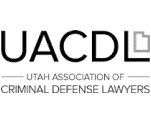Steps in a Utah Criminal Sex Crime Trial
 If you are facing sex crime allegations, you may experience a tedious court process. Starting from your first court appearance through a pretrial conference, the various hearings are an attempt to settle your case before trial. The process will look slightly different depending on whether you are charged with a felony or misdemeanor.
If you are facing sex crime allegations, you may experience a tedious court process. Starting from your first court appearance through a pretrial conference, the various hearings are an attempt to settle your case before trial. The process will look slightly different depending on whether you are charged with a felony or misdemeanor.
Our Salt Lake City sex crimes attorneys are here to discuss the steps in a criminal sex crime trial so you and your loved ones know what to expect.
First Appearance
To understand the trial process for sex crimes, you must be familiar with the criminal court process in Utah. At your first court appearance, a judge will read your charges and apprise you of your right to an attorney. If you are charged with a felony, you will enter a plea. The date for a preliminary hearing will also be scheduled at this time.
The process is slightly different if you are charged with a misdemeanor. In misdemeanor cases, the defendant is arraigned during their first court appearance.
Preliminary Hearing
A preliminary hearing will take place only in felony and Class A misdemeanor cases. Also known as a “probable cause hearing,” a preliminary hearing serves to establish that there is reasonably sufficient evidence to demonstrate that the defendant committed the crime.
If a judge determines that there is probable cause showing that you committed the crime, your case will proceed to trial. If probable cause is not present, your case will be dismissed.
Arraignment
In misdemeanor cases, this is the point at which the court will advise the defendant of his or her legal rights. The defendant is given the right to consult with an attorney, and the hearing is rescheduled if the defendant needs time to confer with counsel.
In felony cases, the judge will read the charges to the defendant. In response, you will enter a plea with the court. A Davis County sex crimes attorney will advise you on how to plead. Most often, a defendant will plead guilty or not guilty to the alleged crime.
If you plead guilty, you avoid the stress of trial. A judge will schedule your case for sentencing. If you plead not guilty, your case will proceed to a pretrial conference.
Pretrial Conference
A pretrial conference is one last chance for a prosecutor and defense attorney to settle your sex crime case. Even if the adverse parties agree to a resolution, the judge always reserves the right to reject their agreement. If your sex crime case is not resolved, you will proceed to trial.
Trial Process
A typical trial will typically unfold according to the following steps:
Bench Trial versus Jury Trial
The defendant reserves the right to waive a jury trial in favor of a bench trial (trial by judge). The difference between a jury and a bench trial is who determines the facts of a case. Many defendants opt for a jury trial since twelve of their peers will be hearing the facts of their case, as opposed to proving their case to a single person.
Voir Dire
Next comes jury selection. A judge most often asks jurors a series of questions to determine if the potential jurors have any biases pertaining to the case. This selection process is known as “voir dire.” Once a jury has been selected, your trial will begin.
Opening Statement
Each side has the opportunity to make opening statements. This provides an overview of the case and tells the judge or jury what facts will be presented. Unlike closing arguments (which we will discuss shortly), each side is not allowed to argue their case in an opening statement.
The defense does have the option to deliver its opening statement immediately after the state or to wait until the prosecution has presented its entire case. Waiting to present an opening statement is known as reserving the opening.
Prosecution and Defense Present Their Case
The government will present its case first. Witnesses will be called to the stand, and evidence will be admitted into the court records. While we all have the constitutional right against self-incrimination, the sexual abuse victim can and usually does testify. Questioning witnesses on your side is known as direct examination.
The defense may question the same witnesses during cross-examination. Unlike other states, in Utah, you are allowed to question a witness on additional matters that were not brought up during direct examination.
Closing Arguments
In criminal trials, the judge will instruct the jury on what laws apply in your case in what is known as jury instructions. Once these instructions are given, both the prosecution and defense will present their closing arguments. This summarizes the evidence and testimony that the jury heard during the trial.
Jury Deliberations and Verdict
A jury will convene in a private room to decide the verdict. A jury generally issues three types of verdicts: guilty, not guilty, not guilty by reason of insanity, and guilty but mentally ill. In criminal trials, a jury’s decision must be unanimous. If you are found guilty, a judge will schedule a sentencing date.
Speak with a Salt Lake City, UT, Sex Crimes Attorney Today
Being charged with a sex crime can be detrimental to your reputation. You may need to serve time in prison and will likely have to register on the sex offender registry. If you are facing such allegations, there is no time to waste. Our Davis County, UT, sex crimes attorneys are available to offer you the help you need. Contact Collins Rupp, P.C. online or by 385-777-2753 to schedule your free consultation.

 385-777-2753
385-777-2753










